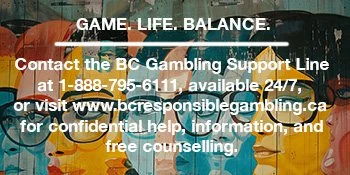The Wisdom of Crowds is Only Valuable with Trust
To quote Kay (Tommy Lee Jones) in 1997’s Men in Black, “A person is smart. People are dumb, panicky dangerous animals.” It makes sense - humans are known to be unpredictable in groups - but it’s perhaps too easy a conclusion to reach. Most of modern life is determined by the experience of a large group rather than a single voice.
When did you last dig deep into Amazon reviews rather than just believing the majority opinion? On a large, expensive purchase, maybe, but it never seems worth the effort for a jigsaw or a lightbulb.
Echo Chambers
Belief in the wisdom of crowds isn’t necessarily foolish. The phrase seems to originate from a 1907 story about a British anthropologist called Sir. Francis Galton, who asked gathered townfolk to guess the weight of an ox. None of them got it in one. However, once Galton found the average of their answers, it worked out almost perfectly. They were just 9lbs out.
The Romans attached significant value to the wisdom of crowds. The phrase vox populi, vox dei translates as the “voice of the people is the voice of god”. Vox Populi is also the name of the paper Galton published his findings in.
Of course, the internet is the ultimate expression of the wisdom - or ignorance - of crowds, depending on where you look. The ability of Reddit and Twitter to create echo chambers for all beliefs can make it an unreliable source of information, even as the web encourages people to unite in the appraisal of garden furniture.
Recently, Google and Reddit announced a partnership aimed at enhancing the way users access information online. This collaboration is part of Google's broader strategy to leverage its AI capabilities to filter and present relevant content more effectively. The integration of Reddit's community discussions with Google's advanced AI increases the 'wisdom of crowds' effect, as it draws on the collective insights and opinions of Reddit users. While this can enrich the diversity of information available, it also means that the reliability of the content depends heavily on the quality and credibility of the crowd-sourced data.
Narrow Niches
The need for reliable opinion inevitably created the idea of the “expert” reviewer. AutoTrader is a good example in Canada but Trustpilot is arguably the better-known brand.
It’s not unusual to find these sites settled into narrow niches. Casino Stake's online casino reviews are dedicated to finding safe and well-regulated operators. The platform claims to register and play at every site before offering its opinion on brands like Spinanga, Betbeast, and Buzz Casino.
This brings us to an awkward point. Reviews are subjective, especially with entertainment like books and movies, and may not always be trustworthy. NPR writes that 49% of people trust reviews when shopping, a figure that climbs to as much as 91% as the individual gets younger.
Recently, Google has implemented a series of algorithm updates that have significantly impacted niche review sites. These updates, designed to prioritize high-quality, authoritative content, have led to the de-indexing of many smaller, specialized review platforms. The goal is to reduce the prominence of low-quality, spammy, or unreliable sources in search results. However, this shift has inadvertently affected niche sites that, despite their specialized knowledge and dedicated following, may not meet the new stringent criteria for authority and trustworthiness.
As a result, these sites are seeing a decline in visibility and traffic, prompting concerns among small content creators about their ability to compete in Gogle’s digital landscape which favours large blogs such as Forbes and New York Times, as well as crowd-source answers from Reddit and Quora, rather than smaller blogging experts on a given topic. This trend highlights the challenges niche review sites face in maintaining their online presence amid evolving search engine requirements.
Trust
We trust negative reviews more than positive ones, longer ones more than shorter ones, and extroverts are easier to fool with a paid or fake opinion than introverts.
This tendency is evident in various scenarios. For instance, on platforms like Amazon, a lengthy, detailed negative review often carries more weight than a brief positive comment, influencing purchasing decisions significantly. Similarly, Yelp users are more likely to believe a comprehensive critique of a restaurant over a short, glowing review. Research shows that extroverts, who are generally more social and outgoing, may be more susceptible to persuasive, paid reviews or fake opinions, especially if these reviews come from seemingly credible sources. In contrast, introverts tend to be more skeptical and analytical, making them less likely to be swayed by such tactics. This dynamic is crucial for businesses to understand as they navigate the landscape of online reviews and customer feedback.
Advertisements
It’ll come as no surprise to bookworms that popular tomes are usually inscribed with praise from other authors. While these aren't hewn from the wisdom of crowds like the examples above, they can be problematic. They might be the most insincere opinions out there, according to author Nathan Filer.
“Cover blurbs aren't reviews. They're advertisements”, Filer told The Guardian newspaper in an article warning fans to “ignore the superlatives”.
Again, though, an appreciation of particular reviews (or reviewers) is subjective. For some people, the words of Stephen King on a novel might as well have come from on high. To others, it is indeed just another advert, an ancient form of banner ad. The same applies to mass reviews at online stores. People may disregard certain opinions if they've already decided they want the product. Call it rose-tinted glasses.
In the end, we arrive at a scenario in which the only reviews people should believe are the ones they want to.
The wisdom of crowds can be both a boon and a bane, amplifying both valuable insights and misinformation. Google's efforts to refine search results and partnerships like the one with Reddit aim to harness the collective knowledge while minimizing noise. Yet, the recent algorithm updates that de-index niche review sites raise questions about the balance between authority and diversity of opinion.
As consumers, it becomes imperative to approach online reviews with a critical mindset. This means considering the source, the depth of the review, and the potential biases of both the reviewer and oneself. The impact of paid and fake reviews on extroverts versus introverts highlights the importance of self-awareness in evaluating information. Ultimately, while the wisdom of crowds provides a wealth of perspectives, it is the individual's responsibility to sift through these perspectives critically. By doing so, we can make more informed decisions, leveraging the best of collective knowledge without falling prey to its pitfalls.










